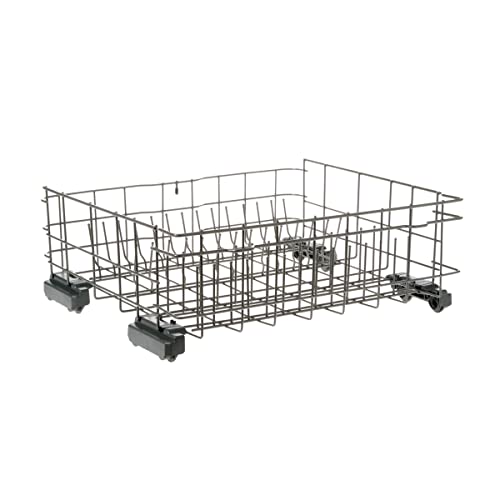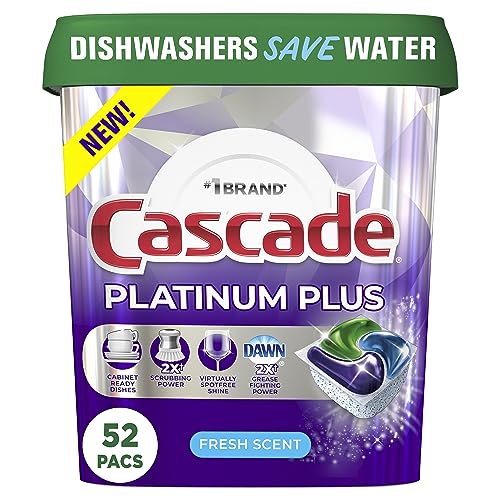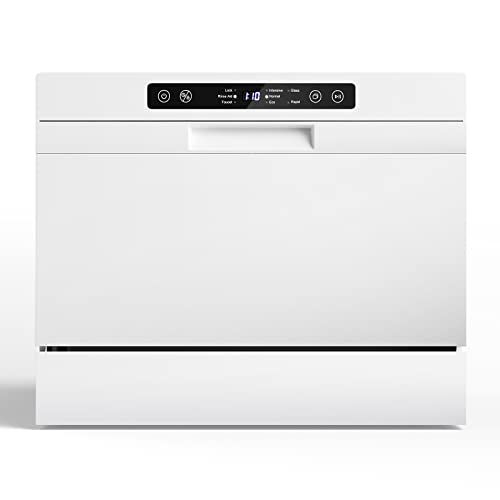Do Dishwashers Save Or Waste Water?
If you are concerned about your impact on the environment, you may be wondering whether you should wash your dishes by hand or use a dishwasher. It is a common misconception that washing dishes by hand is more eco-friendly than using a dishwasher, but this is not necessarily the case.
So, do dishwashers save or waste water? In fact, studies have shown that using a dishwasher can actually save water and energy compared to washing dishes by hand. In this article, we’re going to explore the actual water consumption of modern dishwashers and see how they compare to hand-washing dishes in the sink. We’ll also take a look at how you can calculate the water savings of using a dishwasher over hand-washing and if there are any better ways to save on water when cleaning dishes in a dishwasher.
What Is The Water Consumption Of Modern Dishwashers Compared To Hand-Washing Dishes In The Sink?
People are looking for ways to conserve water and reduce their environmental footprint. One of the ways to achieve this is by making informed decisions on how to clean dishes. Dishwashers have become a common appliance in modern kitchens and are favored for their convenience and efficiency. But, is using a dishwasher more water-efficient than hand-washing dishes in the sink?
Studies have shown that hand-washing dishes can use up to 27 gallons of water per load, whereas modern dishwashers use as little as 3 gallons of water per load. The reason for this significant difference is that dishwashers are designed to use water more efficiently and have advanced technologies like sensors, sprayers, and multiple wash cycles that can help conserve water. Moreover, dishwashers are also built to use hot water, and this improves their cleaning efficiency, thereby reducing the need for water.
It’s also important to note that water usage is not the only factor to consider when comparing dishwashers with hand washing. Dishwashers are more hygienic and kill bacteria better than hand-washing, which can lead to illnesses. Furthermore, dishwashers save time and effort, which means that people can use that time for other important things.
Modern dishwashers are more water-efficient than hand-washing dishes in the sink. Moreover, they are more hygienic, save time and effort, and improve the overall cleanliness of dishes. So, if you want to save water, time, and energy, consider investing in a dishwasher for your home.
How Can I Calculate The Water Savings Of Using A Dishwasher Over Hand-Washing Dishes?
To calculate the water savings of using a dishwasher over hand-washing dishes, there are a number of factors to consider. First and foremost, it is important to note that dishwashers are far more efficient than hand-washing when it comes to water usage. In fact, according to one study, using a dishwasher can save up to 5,000 gallons of water per year compared to washing dishes by hand.
The primary reason for this is that dishwashers are designed to be more water-efficient than hand-washing. Most modern dishwashers use less than 10 gallons of water per cycle, whereas washing dishes by hand can use up to 27 gallons of water per load. In addition, dishwashers are able to reuse the same water for multiple cycles, further reducing water usage.
Another factor to consider when calculating water savings is the fact that dishwashers are able to do more effectively clean dishes than hand-washing. This means that you may be able to run fewer cycles with a dishwasher than you would need to wash the same number of dishes by hand, further reducing water usage.
It is also worth noting that using a dishwasher can reduce the amount of time and energy required to wash dishes, which can in turn reduce overall water usage. This is because hand-washing dishes can be a time-consuming and physically demanding task, which may discourage people from doing it as frequently as they should. In contrast, using a dishwasher can make it easier and more convenient to keep dishes clean, which may encourage more frequent cleaning and ultimately reduce overall water usage.
There are a number of factors to consider when calculating the water savings of using a dishwasher over hand-washing dishes. While the exact amount of water saved will vary depending on a number of factors, it is clear that using a dishwasher is a more water-efficient option that can help reduce overall water usage and promote sustainability in the home.
Are There Any Better Ways To Save On Water When Cleaning Dishes In A Dishwasher?
Indeed, there are several other strategies that can be implemented to effectively cut down water usage when cleaning dishes in a dishwasher. Here are some additional tips to conserve water and reduce your monthly utility expenses:
Invest in an Energy Star-certified dishwasher: These appliances are designed to consume less water and energy during the washing cycle, resulting in significant savings on your monthly utility bills.
Scrape food residues from your dishes: Prior to loading your dishes into the dishwasher, make sure to remove large food particles and scrape off excess grease. This prevents any clogs in the dishwasher’s filters and reduces the chance of water wastage.
Opt for the short washing cycle: If your dishwasher has different wash settings, choose the shortest cycle that effectively cleans your dishes. This can save up to 2-3 gallons of water per cycle!
Wash full loads only: Running your dishwasher when it’s half full is not only inefficient, but it also wastes water and energy. Wait until you have a full load and then run it to maximize the water-saving benefits.
Use a water-efficient faucet aerator: Install a low-flow faucet aerator to your sink to reduce the amount of water that comes out when you’re washing dishes by hand.
By adopting these approaches, you can take proactive steps toward water conservation and minimize your household’s environmental impact. Not only will you do your part in conserving water resources, but you’ll also save money over time by reducing your monthly utility bills.
Conclusion
Overall, dishwashers save water if used correctly while also allowing you to clean dishes faster than manual dishwashing. To ensure your dishwasher is saving the most water and energy possible, you should always check the instructions on the machine before starting a cycle. If you want to save even more energy and water with your appliances, research eco-friendly models or consider purchasing separate rinse-only faucets for manual pre-rinsing.
Additionally, monitoring water usage when running your dishwasher can help track any changes in efficiency or detect any lurking leaks. There are many steps individuals can take to help reduce their environmental impact, especially as it relates to dishwashers. Whether motivated by savings or sustainability, understanding the economics of using a dishwasher may be exactly what one needs to make an informed decision when it comes time to replace an outdated model. Keeping these principles in mind will ensure that you make the right choice for both your household and our planet!





